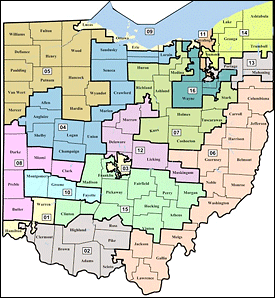A run-off election was held in Oklahoma’s 2nd District for both parties in order to continue the replacement process for retiring Rep. Dan Boren (D-OK-2). Former Democratic district attorney Rob Wallace knocked off local Farm Bureau executive Wayne Herriman by a 57-43 percent count. Wallace will face businessman Markwayne Mullin who won the Republican nomination by the same margin. Democratic turnout, however, was much higher than that for the GOP, about 44,000 voters to just over 21,000. The Eastern Oklahoma 2nd District is viewed as a strong Republican conversion opportunity. Though the 2nd is the most Democratic seat in the state, Oklahoma voters are expected to support Republican presidential nominee Mitt Romney in such landslide proportions that additional momentum will be generated for Mullin in the congressional contest.
But the big prize in last night’s primary contests was Arizona. As expected, Rep. Jeff Flake (R-AZ-6) easily captured the Republican Senatorial nomination, defeating businessman Wil Cardon by capturing more than two-thirds of the Republican vote.
In the Scottsdale-anchored new 6th Congressional District, in a paired major battle of two incumbent freshmen Republicans, Rep. David Schweikert (R-AZ-5) defeated his GOP colleague, Rep. Ben Quayle (R-AZ-3), by a 53-47 percent margin. This has been a hotly contested campaign since the beginning, with each candidate attempting to sell himself as the more conservative stalwart. Schweikert will easily win the general election and should be able to hold this seat for the remainder of the decade, barring any type of further significant primary challenge.
In the expansive eastern 1st CD, also producing no surprises, former representative Ann Kirkpatrick took the Democratic nomination and will face former state senator Jonathan Paton who was a landslide winner on the Republican side. The 1st is a highly marginal district, so expect a fierce battle in the general election.
In the new southeastern 2nd District, formerly numbered 8, newly elected Rep. Ron Barber (D), fresh from his recent special election victory, will attempt to win a full term against former Gulf War veteran Martha McSally (R).
The western 4th District was drawn as Arizona’s safest Republican seat, which explains why freshman Rep. Paul Gosar moved here from the marginal 1st District despite only representing one-third of the new constituency. The ploy worked as Gosar defeated state Sen. Ron Gould and GOP businessman Rick Murphy, while overcoming more than $800,000 in conservative independent expenditure targeted against him. The congressman should now have an easy ride in the general election, even though he only notched 51 percent of the vote against his two Republican opponents.
Back in suburban Phoenix, former Rep. Matt Salmon looks like he has won a ticket back to Congress with a solid victory over former Arizona state House Speaker Kirk Adams. The 5th District is another safe Republican seat, so Salmon now appears to be a lock for victory in November.
In the new marginal 9th District, also in the Phoenix suburbs, Democratic former state senator Kyrsten Sinema won her party’s nomination, defeating state Senate Minority Leader David Schapira and former state party chairman and Clinton Administration official Andrei Cherny. On the Republican side, Paradise Valley Mayor and former congressional candidate Vernon Parker won a very close Republican primary contest, as he placed first against six other candidates.
Republicans had hoped Sinema would become the Democratic nominee because they believe she can be painted as too liberal for the CD-9 constituency. Expect a hot race here in the fall. Democrats should enjoy a slight advantage, and an edge that will likely expand throughout the rest of the decade due to demographic changes but, for now, the 2012 congressional battle must be considered a toss-up.










